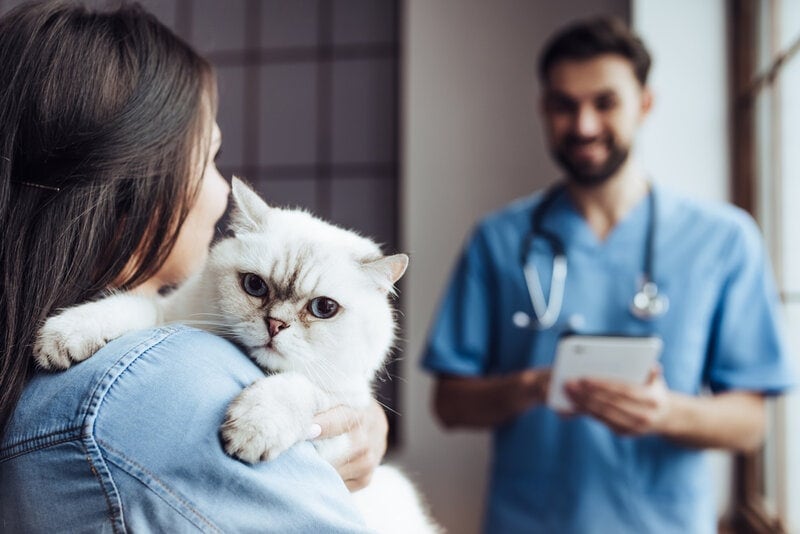Can Cats Smell Cancer? The Reliability of Their Detection
Updated on

The news is filled with stories of heroic animals saving humans from disaster and more. However, did you know that dogs are supposed to be able to sniff out cancer in humans? These are the feel-good stories that we love to hear and see, especially in today’s chaotic world, where everything on the news is dire and tragic.
Dogs can sniff out cancer in humans, but can cats? Sadly, there’s no solid evidence to back up the claim that a cat can sniff out cancer in the same way a dog can. However, some experts say cats do have the potential to detect the dreaded disease in humans. We’ll discuss cats and cancer detection below.
Can Cats Sniff Out Cancer?
Since there have been no studies done and no concrete evidence other than stories that grateful cat owners have told, there’s really no way to know if a cat can smell cancer.
However, cats’ noses are more sensitive than dogs’ since they have more V1R receptors, quite a few more, in fact. While your cat’s nose might not be reliable for detecting disease, its ability to sniff out food, prey, and danger is for sure.

Cats Are Challenging to Train
Compared to canines, cats are difficult to train. Some people think cats are untrainable and too unpredictable to be used in something as serious as cancer research. However, cats are not completely untrainable, as plenty of research shows. Some breeds can be trained to walk on leashes, play fetch, and come when you call them. While a cat may be a bit more challenging to train than a dog, it can be done with the right motivation and patience.
Could Cancer Detection by a Cat Be Trusted?
Accuracy is essential when it comes to training an animal to detect cancer in humans. Cats have a better time distinguishing smells than dogs but need time to adjust to new scents in their lives. However, felines are not as food-motivated as dogs and do not respond to training as easily. Since disease detection with dogs has shown promising results, with higher accuracy ratings than other animals, the research has focused on improving the dogs’ skills rather than testing cats. Some owners have claimed that their cats have detected illnesses, but without scientific proof, a cat’s cancer-detecting skills are questionable.

Final Thoughts
In many people’s opinion, it’s pretty clear that cats can smell cancer. However, they are considered too unpredictable for scientists to use in cancer research. If your cat suddenly starts pawing and scratching at some part of your body, does it mean you’re sick? Should you call your doctor to be checked? The answer to those questions isn’t clear, but it couldn’t hurt to make an appointment with your doctor, just in case. Cats have the tools they need to sniff out cancer, but it hasn’t been proven that they can. With a bit more research, who knows, maybe they will be able to in the future.
Featured Image Credit: MALIN A, Shutterstock












